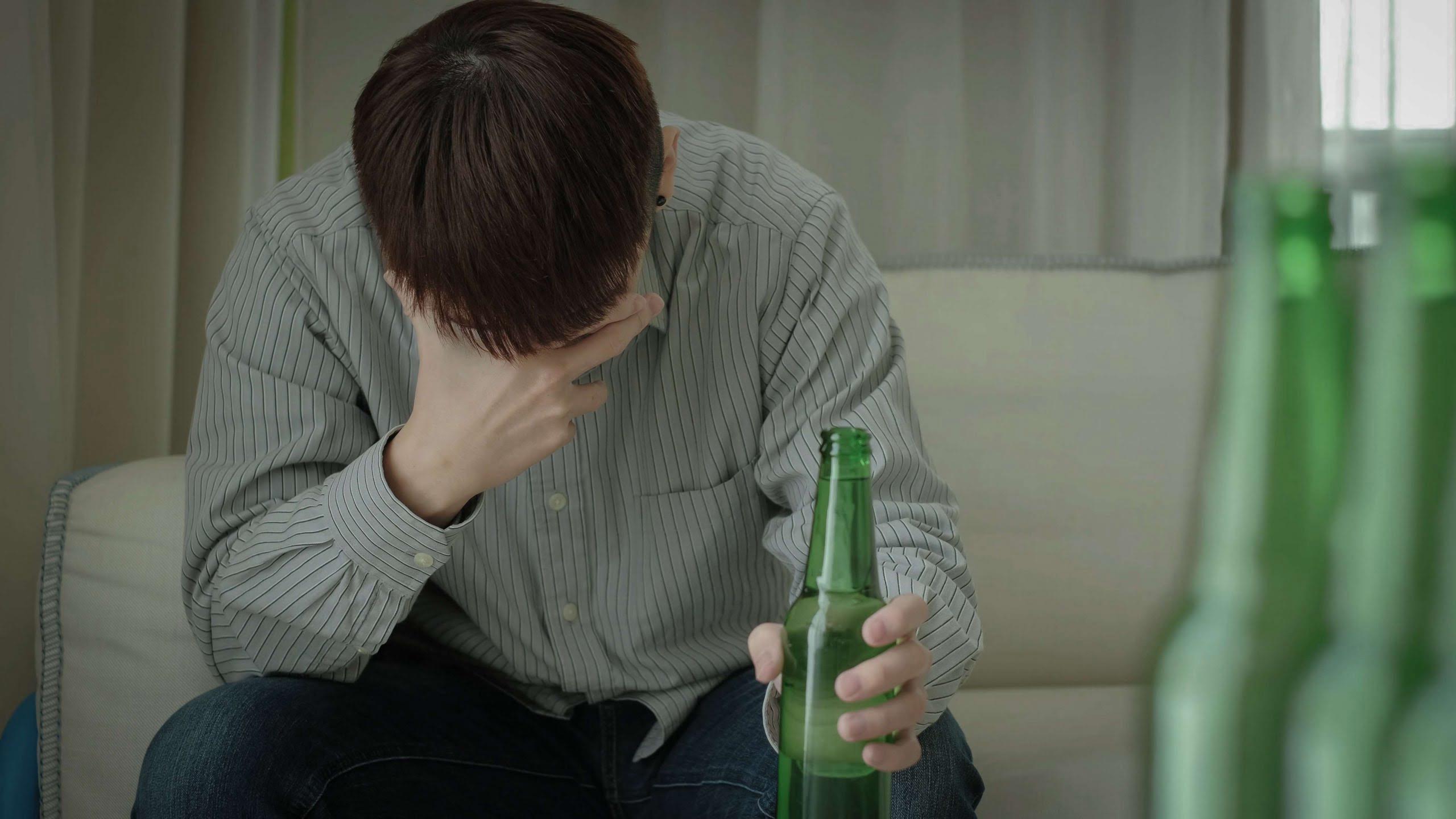Individuals may experience withdrawal symptoms when they’re not using the substance or engaging in the behavior. Initial use is the starting point, where an individual first tries a substance or engages in a behavior. This could be out of curiosity, peer pressure, or an attempt to manage stress or pain. https://tratos.com/mash-certified-sober-homes-5/ However, for others, this phase sets the stage for the changes in the brain that can lead to addiction. The release of dopamine makes us feel good and motivates us to repeat these activities. However, when someone repeatedly uses addictive substances or engages in addictive behaviors, it hyper-stimulates the normal reward process, leading to an excessive release of dopamine.

We are New Jersey’s leading addiction treatment center
Therapy can help you make lasting changes and stay on the right path. For example, people who use methamphetamine for a long time may experience paranoia, hallucinations, and delusions that may be mistaken for symptoms of schizophrenia. Understanding the cycle of addiction is the first step towards breaking free from its grasp and reclaiming control over one’s life. By recognizing the stages of the addiction cycle and seeking help when needed, individuals can embark on the path to recovery and build a brighter, substance-free future. With determination, support, and a commitment to self-care, liberation from addiction is possible, and a life of health, happiness, and fulfillment awaits on the other side of the labyrinth.
Signs of Tolerance and Dependence
Before you leave our treatment center, Catalina Behavioral Health will help you plan for your next steps. Understanding the stages of recovery helps individuals, families, and clinicians recognize where someone is in their journey and offer the right kind of support. It also sets realistic expectations, reduces frustration, and improves the chances of long-term sobriety. Aftercare helps you stay on track and keep practicing what you learned while in rehab. It won’t just be a case of halting the destructive behavior; change will be apparent in multiple aspects of their lifestyle. Self-care and self-understanding are choose the correct cycle of addiction both present in this treatment stage, but counseling is required to keep them on the right path.
Let’s Take the Next Steps Together

If you’re starting or already on this road, take heart in the strong support network and resources that promise a hopeful and changed future in addiction recovery. The detox phase, the battles faced, and fixing broken relationships can all vary greatly2324. Sober living house The hard times at the start show why it’s crucial to deal with mental health and find good ways to cope.
Substance Abuse Psychotherapy
Various triggers can lead to relapse, including stress, exposure to the substance or related environments, or mental health disorders. Understanding, anticipating, and planning for these triggers is a crucial part of the recovery process. Addiction is a cycle that entraps individuals in a pattern of use, tolerance, dependence, and pursuit of often harmful substances or behaviors. This cycle is driven by changes in brain chemistry and structure, leading to an overpowering need that overshadows health, relationships, and personal well-being. During the second stage of addiction, the person isn’t using drugs or alcohol to feel good.
Relapse triggers like stress, relationships, or loneliness are common, which is why therapy, structure, and support groups are so crucial. At Recovery at the Crossroads, we help clients build healthy routines and coping strategies tailored to their lives. Understanding the five stages of addiction recovery isn’t just useful for those struggling with substance use — it’s also vital for families, friends, and treatment providers. Recognizing what stage a person is in allows for more effective communication, realistic expectations, and the right kind of support. Rather than pushing someone toward treatment before they’re ready, loved ones can help guide them gently and respectfully, increasing the likelihood of long-term success. Treatment for substance abuse can include inpatient and outpatient treatment programs, counseling, medication-assisted treatment, and support groups.

By familiarizing ourselves with these stages, we can better understand the complexity of addiction and the need for intervention and treatment. The line between regular use and dependence can be blurry, but it’s a crucial threshold. As the body and mind adapt to the presence of the substance, tolerance builds.
The Lifelong Journey: The Importance of Continuing Education and Growth in Recovery
- The DSM-5 outlines 11 symptoms, including tolerance, withdrawal, cravings, continued use despite harm, and neglect of responsibilities.
- Even if they recognize that their use is out of control, they feel unable to stop.
- It’s a complex, chronic brain disorder characterized by compulsive drug seeking and use, despite harmful consequences.
This involves examining the definition of addiction and recognizing the complexity that lies beneath its surface. The Addiction Triangle often includes strained relationships as one of its corners. Trust is eroded, communication breaks down, and the needs of the addiction often take precedence over the needs of loved ones. Social isolation can occur as individuals withdraw from friends and family, either out of shame or to hide their substance use. Addiction doesn’t just affect the individual using substances – its impacts ripple outward, touching every aspect of a person’s life and the lives of those around them. Let’s explore some of the far-reaching consequences of addiction.
Addiction can be defined as a chronic and relapsing disorder characterized by compulsive drug-seeking and use, despite negative consequences. It is considered a brain disease that affects the reward and motivation systems, leading to a loss of control over substance use behaviors. Addiction and mental health often go hand in hand, creating a complex web of challenges. Substance use can exacerbate existing mental health conditions or trigger new ones. Gateway drugs are substances like alcohol, nicotine, and cannabis that increase the likelihood of using more addictive substances.
The individual may face severe withdrawal symptoms, health complications, and significant disruptions to their daily life. Breaking free from this stage typically requires a combination of detoxification, therapy, and ongoing support to rebuild and maintain sobriety. To prevent addiction requires early intervention, education, and lifestyle changes that reduce substance use risk. Avoiding environments where substance use is common helps limit exposure, especially for adolescents and young adults.
Addiction Cycle: Understanding the Phases, Consequences, and Breaking Free
That’s why continuous, professional monitoring is highly recommended10. Knowing that addiction can develop quickly or over many years helps in creating effective recovery plans. This insight lets healthcare providers offer care that’s caring, thorough, and suited to each patient’s unique recovery needs4. Stay up-to-date with relevant counseling best practices, treatment approaches, and general addiction recovery field news. Take those addiction counselor courses online, complete your substance use counselor certificate renewal, and stay committed to the mission.
They don’t feel the urge to relapse as frequently as people in the action stage, so their confidence grows and they truly believe in their ability to maintain sobriety long term. Relapse is a common occurrence in the recovery process and often indicates that the individual is still struggling with their substance use disorder. Understanding relapse rates for addiction can help in developing a more effective treatment plan. Focuses on helping individuals understand the thoughts, emotions, and behaviors driving their substance use. Therapists use approaches like CBT and trauma-informed care to break negative patterns and teach healthy coping skills. This form of therapy is essential for addressing the root causes of addiction and creating a strong foundation for long-term recovery.
